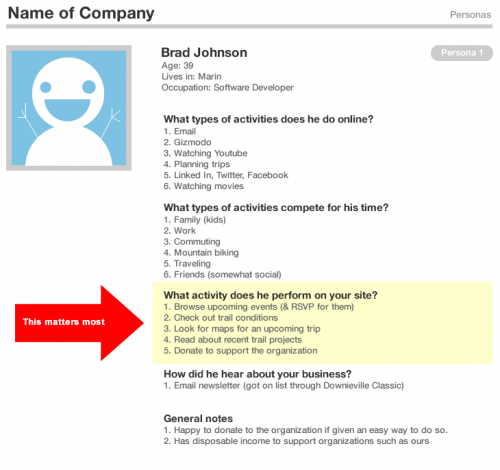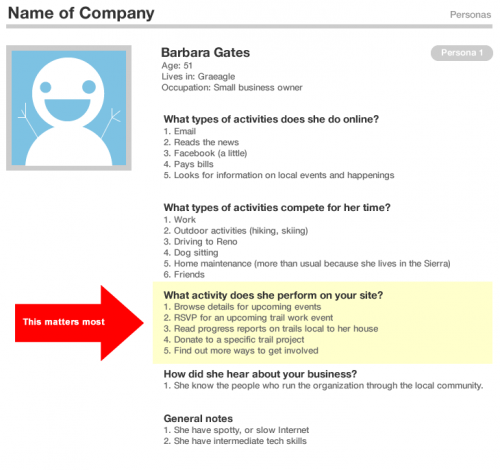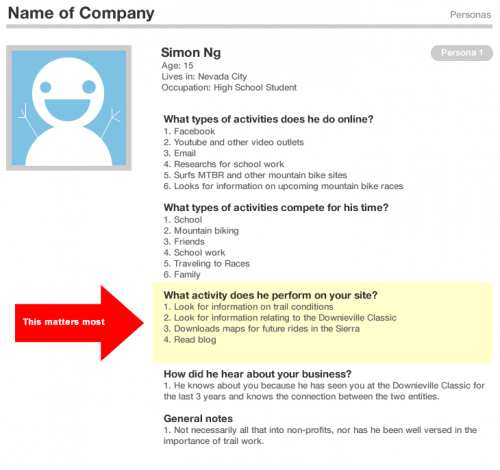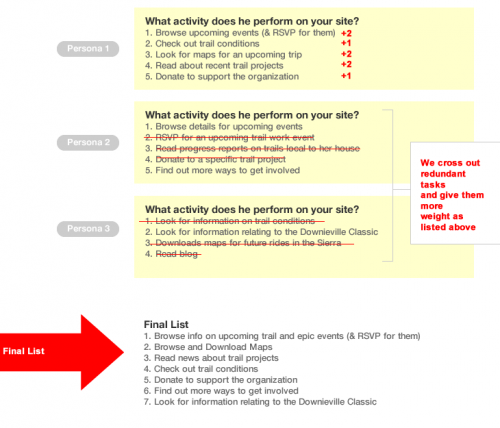One of the hardest challenges in web design is creating a design that effectively meets the needs of a business's diversified customer base. 90% of the time, a business targets several audiences, all of whom want to do something different on the site. So how do we go about prioritizing these various tasks that our customers want to perform? And how does this inform the design?
Creating Personas
I start by creating Personas. Personas are fictitious people who represent your key customers and illustrate their unique desires and motivations on your site. These Personas will eventually define and also prioritize your site's functionality.
Persona Template
Below is an example of a generic Persona template. You can download this Fireworks file to use this yourself. I recommend adding any further necessary fields on a project-by-project basis.
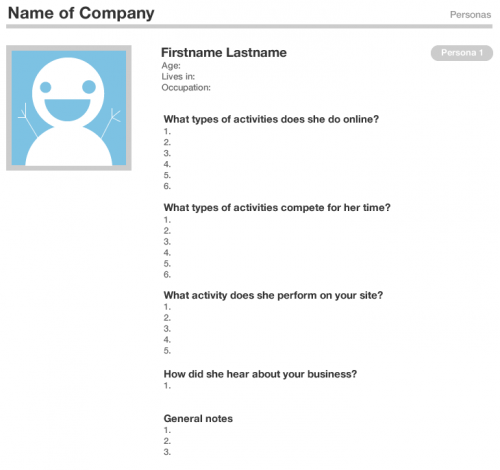
TIP: Leisa Reichelt mentioned in her DrupalCon Chicago talk that you should make sure all your team members refer to your Personas by their actual names. This helps humanize the project and reminds everyone that the site being built is for real people, who have real desires and aspirations.
How It Works
Let's create a fictitious website to try this on. Say we want to create a website for a non-profit organization that builds trails in the Sierra Nevada (I just happen to help run one of these on the side). We'll create three Personas to encapsulate the top three tiers of members who regularly visit this site.
Persona 1
Persona 2
Persona 3
The image above illustrates a prioritized list of tasks that your top three tiers of members would like to do on your site. You can use this information to inform the visual hierarchy of the site, both in the wireframe and visual design phase.
Additional Benefits
The additional benefit of working this way is that it allows for stakeholder buy-in early in the process. Agreeing on a prioritized list of site tasks serves as a reference point for design feedback. You can collectively look back to the Personas document throughout the project to remind yourselves of some of the key things you're trying to address. In short, it prevents you from getting "lost in the weeds" and keeps projects on target with the original goals in clear focus.
